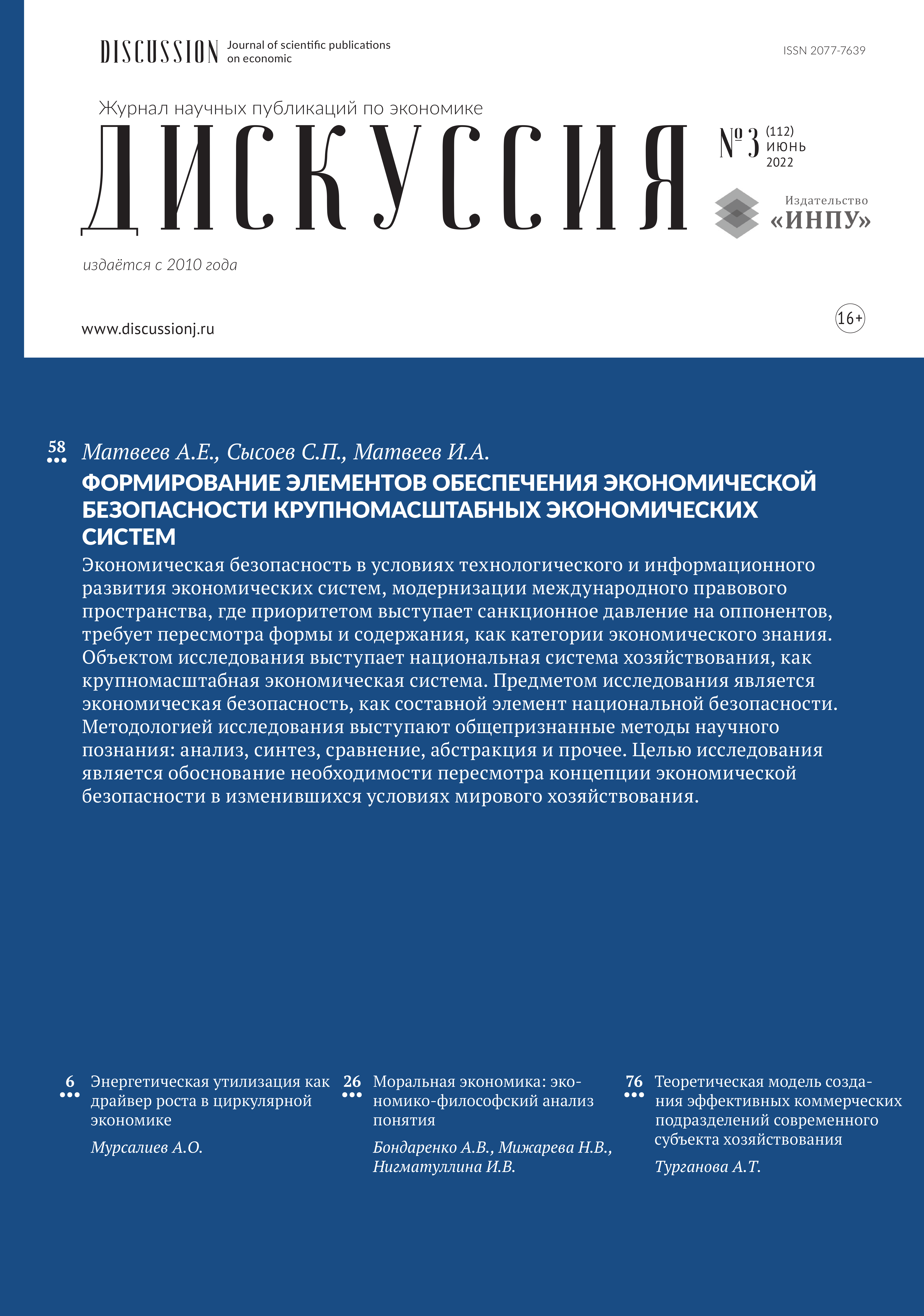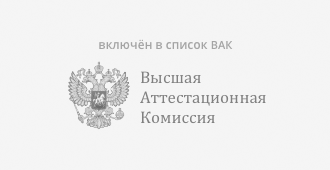Energetics and social eﺔciency in the context of the functioning of the modern economy
Keywords:
energy profitability, energy resources, return on investment in energy, sustainable development, energy storage, public well-beingAbstract
The social efficiency of energetics is an important component of social welfare, which determines the sustainable development of social and production systems. The object of the research is energetics as a sector of economy. The subject of the study is the social space of energetics, which determines social and material welfare. The methodology of the research is the use of economic methods of cognition, including the study of statistical patterns and argumentation based on logical principles of thinking. The purpose of the study is to substantiate and quantify the social efficiency of energetics as a sector of economy. Research objectives: 1. To study the theoretical sources characterizing the subject area of the study; 2. To present quantitative statistical data on Russia and the world; 3. To formulate reasonable conclusions. In the study, we proceed from the hypothesis that the consumption of energy resources and the welfare of society are closely related and directly correlated. This hypothesis is confirmed by the theoretical analysis of fundamental research in the subject area. Research results: 1. A theoretical analysis of the EROI indicator and its particular cases is presented; 2. Quantitative values of the EROI indicator for the USA and European countries are presented; 3. Indicators of power and consumption of energy resources in Russia are presented; 4. Calculation of the social efficiency of energetics for Russia is presented.
Downloads
Metrics
References
Martinez D. M., Ebenhack B. W. Understanding the role of energy consumption in human development through the use of saturation phenomena //Energy Policy. – 2008. – Т. 36. – №. 4. – С. 1430-1435.- DOI: 10.1016/j.enpol.2007.12.016.
Lambert J. G. et al. Energy, EROI and quality of life //Energy Policy. – 2014. – Т. 64. – С. 153-167.- DOI: 10.1016/j.enpol.2013.07.001.
Munasinghe M. The sustainomics transdisciplinary meta-framework for marking development more sustainable: Applications to energy issues //Economics of Environment & Development. – 2008. – С. 11-18.- DOI: 10.1504/ijsd.2002.002563.
Smil V. et al. Energy at the crossroads: global perspectives and uncertainties. – Cambridge, Mass.: MIT Press, 2003.
Fanchi J. R. Energy technology and directions for the future. – Academic Press, 2004.
Everett R. et al. Energy systems and sustainability: power for a sustainable future. – Oxford Univerity Press, 2012.
Murphy D. J., Hall C. A. S. Year in review-EROI or energy return on (energy) invested //Annals of the New York Academy of Sciences. – 2010. – Т. 1185. – №. 1. – С. 102-118.- DOI: 10.1111/j.1749-6632.2009.05282.x
Murphy D. J. et al. Order from chaos: a preliminary protocol for determining the EROI of fuels //Sustainability. – 2011. – Т. 3. – №. 10. – С. 1888-1907.- DOI: 10.3390/su3101888.
Atlason R., Unnthorsson R. Ideal EROI (energy return on investment) deepens the understanding of energy systems //Energy. – 2014. – Т. 67. – С. 241-245.- DOI: 10.1016/j.energy.2014.01.096.
Guerra Martin G. Implementation of the Energy Return on Investment (EROI) into the EnergyScope TD model : дис. – Universitat Politècnica de Catalunya, 2021.
Россия и мир: 2022. Экономика и внешняя политика. Ежегодный прогноз / Рук. проекта – А.А. Дынкин, В.Г. Барановский. – М.: ИМЭМО РАН, 2021. – 136 с.
Sgouridis S. et al. Comparative net energy analysis of renewable electricity and carbon capture and storage //Nature Energy. – 2019. – Т. 4. – №. 6. – С. 456-465.-
Huang C. et al. Energy return on energy, carbon, and water investment in oil and gas resource extraction: Methods and applications to the Daqing and Shengli oilfields //Energy Policy. – 2019. – Т. 134. – С. 110979.- DOI: 10.1016/j.enpol.2019.110979.
Hall C. A. S., Balogh S., Murphy D. J. R. What is the minimum EROI that a sustainable society must have? //Energies. – 2009. – Т. 2. – №. 1. – С. 25-47.- DOI: 10.3390/en20100025.
Downloads
Published
How to Cite
Issue
Section
Categories
License
Copyright (c) 2022 Ю. В. Соловова

This work is licensed under a Creative Commons Attribution-NonCommercial-NoDerivatives 4.0 International License.
Авторы, публикующие произведения в журнале «Дискуссия», соглашаются со следующими условиями:
- Авторы сохраняют за собой авторское право и предоставляют журналу право первой публикации произведения, одновременно лицензированной в соответствии с лицензией Creative Commons Attribution, позволяющей другим лицам пользоваться произведением с подтверждением авторства и первоначальной публикации в журнале «Дискуссия».
- Авторы вправе заключать с иными лицами лицензионные договоры на условиях простой (неисключительной) лицензии на использование опубликованного в журнале «Дискуссия» произведения (например, размещение его в базах данных университетов, публикация в книге), со ссылкой на его оригинальную публикацию в этом журнале.
- Автор гарантирует, что является правообладателем всех материалов, предоставляемых в редакцию, и что исключительные права на данные материалы не переданы или не предоставлены другим лицам.
- Авторам разрешено и рекомендуется размещать свое произведение в Интернете до и во время процесса подачи, поскольку это может привести к продуктивному обмену, а также к более раннему и более широкому цитированию опубликованных работ.
С момента загрузки произведения и сопроводительных материалов через раздел "Отправка материалов", автор полностью и безоговорочно принимает (акцептует) публичную оферту о заключении авторского соглашения об опубликовании произведения. В соотвтетствии с этим соглашением автор предоставляет издателю на безвозмездной основе неисключительную лицензию на использование созданного автором произведения.
С момента получения произведения и прилагаемых к нему материалов журнал "Дискуссия" вправе использовать полученные произведения без ограничений по своему усмотрению и в пределах всего срока действия исключительных прав, но с обязательным указанием имени автора (авторов) произведения, в том числе публиковать произведения (полностью или в сокращении) на территории всего мира, переводить на другие языки, направлять в репозитории научной информации, размещать в сети Интернет и использовать другими законными способами.









